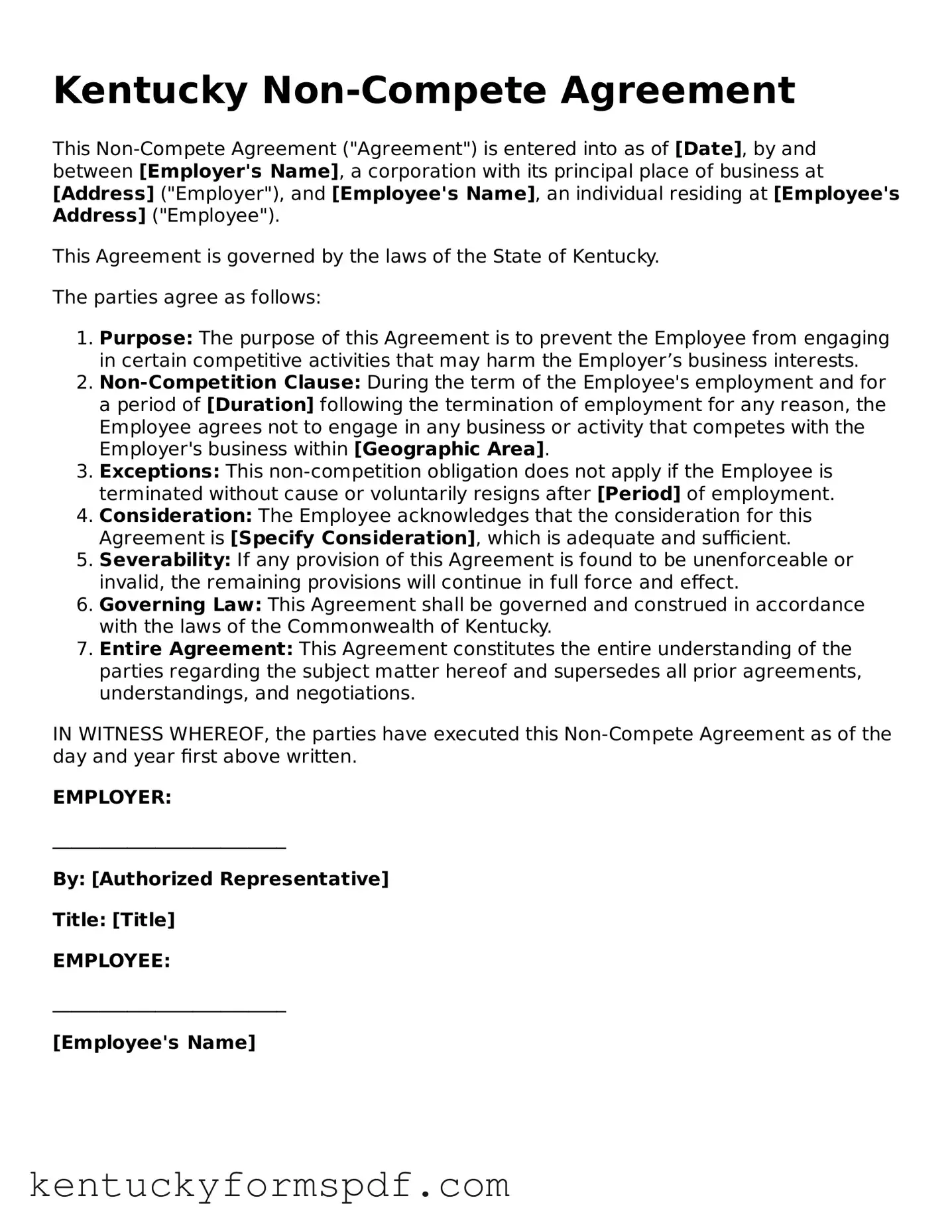The Kentucky Non-compete Agreement shares similarities with the Employment Agreement, a fundamental document in the employer-employee relationship. An Employment Agreement outlines the terms and conditions of employment, including job responsibilities, compensation, and duration of employment. Like the non-compete agreement, it aims to protect the interests of the employer while establishing clear expectations for the employee. Both documents often include clauses related to confidentiality and proprietary information, ensuring that sensitive company data remains secure during and after employment.
When engaging in transactions, understanding the importance of the documents involved is crucial. For those in New Jersey, a valuable resource is the thorough guide to understanding the bill of sale requirements, which can help clarify the necessary steps for legally transferring ownership between parties.
Another document closely related to the Non-compete Agreement is the Non-disclosure Agreement (NDA). This legal contract prevents employees from sharing confidential information with outside parties. While the non-compete focuses on restricting future employment opportunities, the NDA emphasizes the protection of sensitive information. Both documents serve to safeguard a company’s intellectual property and trade secrets, thereby fostering a secure environment for business operations.
The Independent Contractor Agreement also bears resemblance to the Non-compete Agreement. This document governs the relationship between a business and a contractor, outlining the terms of service, payment, and project scope. Similar to non-compete agreements, Independent Contractor Agreements may include clauses that restrict the contractor from working with competitors or disclosing proprietary information. Both agreements aim to protect the interests of the business while delineating the responsibilities of the parties involved.
A Partnership Agreement, which governs the relationship between business partners, also shares features with the Non-compete Agreement. This document outlines the roles, responsibilities, and profit-sharing arrangements among partners. In some cases, Partnership Agreements may include non-compete clauses to prevent partners from engaging in competing businesses after the partnership dissolves. Both documents are crucial in defining the boundaries of business relationships and protecting shared interests.
Finally, the Licensing Agreement can be compared to the Non-compete Agreement. A Licensing Agreement allows one party to use another party's intellectual property under specified conditions. Similar to non-compete agreements, licensing agreements often include terms that restrict the licensee from using the licensed material in ways that could harm the licensor's interests. Both types of agreements are designed to protect proprietary rights while facilitating business transactions and collaborations.

